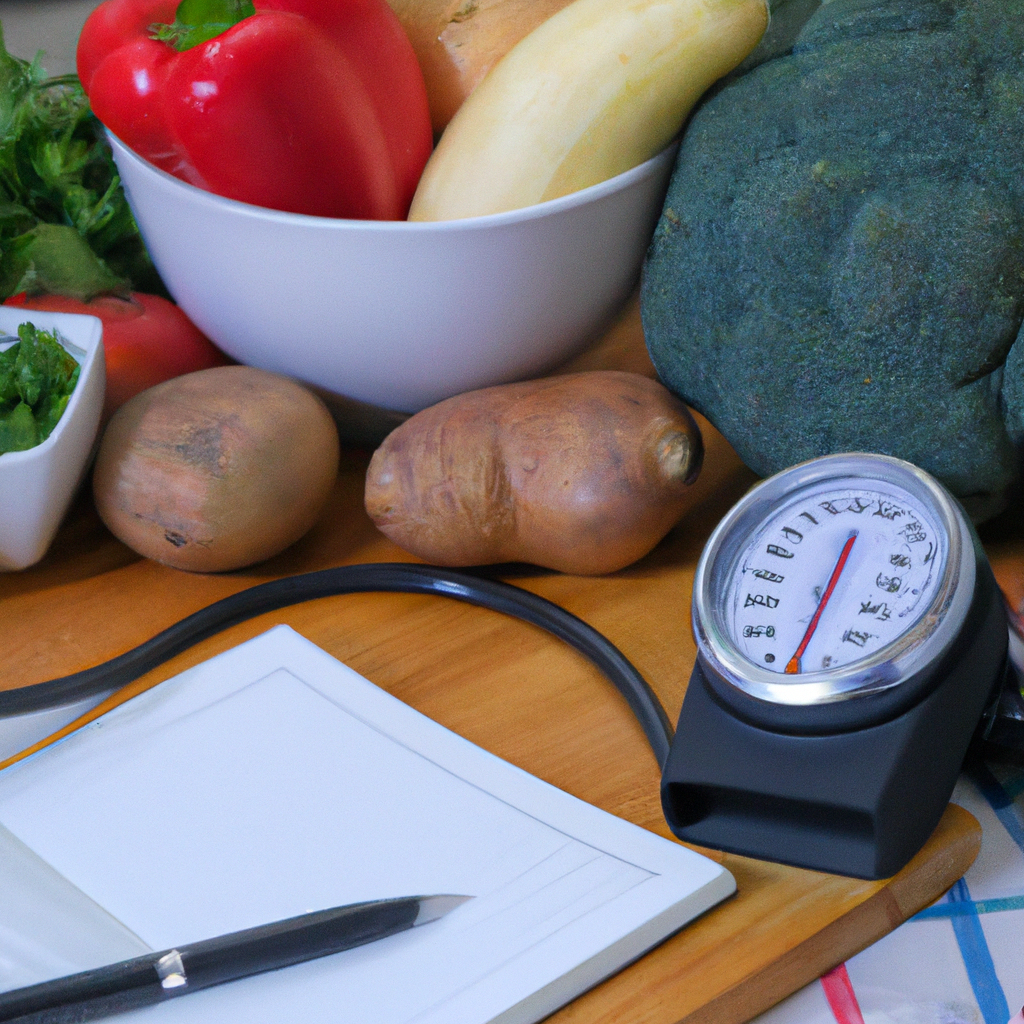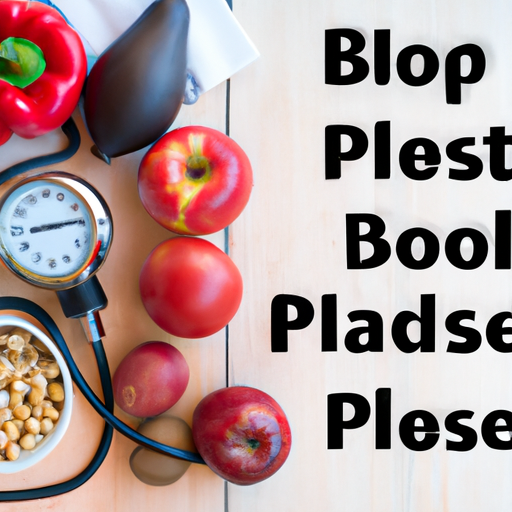Food is one of the key elements for living a healthy life, and a diet rich in essential vitamins and minerals is instrumental in keeping our bodies functioning optimally. It can be especially critical for those controlling their blood pressure, and for this purpose there is the Blood Pressure Diet, a diet intended to help lower blood pressure through nutritious dietary recommendations. In this article, we’ll explore what the Blood Pressure Diet is and uncover some of the best dietary recommendations for hypertension control.
1. Foods to Eat for Controlling Hypertension
Maintaining a healthy diet is essential to keeping one’s blood pressure in check. Here are some of the top foods that are recommended when it comes to controlling hypertension.
- Leafy Green Vegetables: Leafy greens like spinach, kale, arugula, Swiss chard, Romaine lettuce, and collards are packed with antioxidants and minerals that contain anti-inflammatory, antihypertensive properties.
- Fatty Fish: Wild-caught fatty fish like sardines, anchovies, salmon, herring, lake trout, and mackerel are some of the best sources of omega-3 fatty acids. These fatty acids have been shown to help in controlling high blood pressure.
- Beans: Beans and lentils are a great source of dietary fiber, protein, and antioxidants. These make them excellent for controlling hypertension.
- Berries: Berries like blueberries, strawberries, raspberries, and blackberries are packed with bioactive compounds that help to reduce blood pressure.
- Fruits: Fruits like apples, oranges, and dates are also filled with essential nutrients and antioxidants. Eating a good variety of fruits can help regulate blood pressure.
Making sure to incorporate these foods into one’s diet on a regular basis is key to controlling hypertension. It is also important to remember that balanced nutrition is key, so make sure to eat all the other required nutrients in moderation for overall health.
2. Drinks & Beverages for Hypertension Management
High blood pressure can be managed through lifestyle changes such as eating healthy, managing stress, exercising and limiting alcohol consumption. Beverages and drinks also play an important role in controlling hypertension. Drinking the right kind of drinks can help reduce the burden of high blood pressure.
1. Tea: Regular intake of tea has been associated with lower blood pressure. Black tea, green tea, white tea, chamomile, and hibiscus tea are some of the best teas for controlling high blood pressure. They are loaded with antioxidants and have anti-inflammatory properties that can help reduce hypertension.
2. Low-sodium Juice: Fresh fruits and vegetables provide an excellent source of vitamins, minerals, and antioxidants. Fresh juices prepared at home without adding any salt are a great choice for hypertension sufferers. Many commercially prepared low-sodium juices are also available that can be drunk in moderation. These can be complemented with vegetables and fruits for snacks.
3. A Balanced Diet for Optimal Blood Pressure
Having a nutritious diet is key to maintaining healthy blood pressure levels. Eating a balanced diet can help ensure that your body has the necessary nutrients and minerals it needs for efficient functioning. Here are a few tips for creating a balanced diet:
- Fruits and vegetables: Aim to make half of every meal fruits and vegetables. These are packed with essential minerals, vitamins and antioxidants that can help improve blood pressure and circulation.
- Whole grains: Choose whole grains over refined ones, as they contain more fiber and minerals.
- Lean proteins: Protein-rich foods such as fish and legumes help reduce inflammation, thereby supporting a healthy blood pressure.
It’s also important to keep an eye on the amount of salt, sugar, and saturated fats in your diet. Limit salty snacks, processed meats, pastries, and fried food – all of which are known to raise blood pressure levels. Include unsaturated healthy fats, such as olive oil, to ensure that you have enough good cholesterol in your body. By sticking to a balanced diet, you can ensure more optimal blood pressure levels!
4. Planning Your Hypertension Diet: Tips for Success
When it comes to reducing high blood pressure, your diet plays a crucial role. Planning smart meals to fit your dietary needs is a key factor in achieving hypertension control. Here are some tips to help you reach your health goals.
- Be mindful of sodium: Consuming too much salt can be detrimental to your blood pressure, so pay attention to hidden sources of sodium in food labels when making smart choices. Try incorporating more fresh foods like fruits and vegetables, which are lower in sodium.
- Know your fats: Unsaturated fats like avocadoes and olive oil can help regulate your cholesterol levels. Eliminating or reducing the intake of saturated fats can also boost your overall cardiovascular health.
- Measuring your portions: It always helps when portion control becomes part of your daily routine. Weighing and measuring foods can also help you stay mindful of your calorie intake.
- Carbohydrate-rich foods: Whole grain foods and fibrous vegetables can be a powerful addition to any hypertension-friendly diet. Also, look for alternative sources of sugar such as maple syrup which contain fewer calories.
Focusing on eating healthy can be an excellent way to prevent and manage hypertension. Plan meals in advance and get professional advice as needed. This will ensure that you maintain a well-balanced diet and a healthy lifestyle.
Q&A
Q: What is hypertension?
A: Hypertension is a condition in which the force of the blood against the artery walls is consistently too high. Otherwise known as high blood pressure, it increases the risk of heart disease and stroke.
Q: What kind of diet should someone with hypertension follow?
A: A person with hypertension should follow a balanced diet high in fiber, fruits, vegetables, and whole grains. It’s also important to limit sodium, saturated fat, and alcohol consumption. Additionally, it’s recommended to monitor carbohydrate intake, as it can affect blood pressure levels.
Q: What are the benefits of following a healthy diet for controlling hypertension?
A: By reducing calorie consumption and maintaining a healthy weight, a healthy diet helps to improve blood pressure. Additionally, specific foods are known to have a positive effect on hypertension, such as high omega-3 fatty acids (found in fish), potassium, magnesium, and calcium (which come from fruits, vegetables, and legumes).
By following the dietary recommendations outlined in this article, those with hypertension can take better control of their blood pressure and reduce their risks of heart disease, stroke, and other health complications. This is such a simple and effective way of promoting heart health and improving quality of life. So, eat right and keep that blood pressure in check!
Managing blood pressure can be difficult. Eating healthily and following a blood pressure-lowering diet is often recommended. This article will provide dietary recommendations for hypertension control.
Firstly, it is recommended to reduce sodium intake. The American Heart Association (AHA) recommends limiting sodium intake to no more than 2,300 milligrams a day. Salt is often found in processed foods as well as some restaurant offerings. Some condiments, like soy sauce and ketchup, also contain a high amount of sodium. Reducing sodium intake will help as it reduces the amount of water retention in the body, subsequently lowering blood pressure.
Eating more of certain foods like fruits and veggies is also beneficial for managing blood pressure. Fruits and veggies are naturally low in sodium and carry a wealth of other nutrients that increase heart health and reduce high blood pressure. Eating a wide variety of produce is ideal so that you can gain the full range of vitamins, minerals, and phytonutrients available with different kinds of veggies and fruits.
Consuming more low-fat dairy, whole grains, protein sources, and healthy fats is also recommended. It is especially important to replace saturated fats with unsaturated fats, like those found in avocados, nuts, seeds, and olive oil. Fish and omega-3 fatty acid supplements are also beneficial because of their ability to reduce inflammation, which in turn can help to reduce high blood pressure.
It is also beneficial to limit alcohol intake. Excessive alcohol can raise and disrupt your blood pressure. Drinking in moderation can also cause problems for your heart, as well as increase your risk of stroke and diabetes.
Finally, staying hydrated is key. Drinking plenty of water will help keep your body and heart healthy in many ways. It helps to reduce bloating and other water retention, and it also helps to keep your body functioning optimally. It is recommended to drink at least 8 cups of water per day.
Following the recommendations above can help you to better manage and lessen the effects of hypertension. By eating a well-balanced, low-sodium diet and drinking plenty of water, you can drastically improve your heart health and reduce your risk of stroke and other heart-related illnesses.
